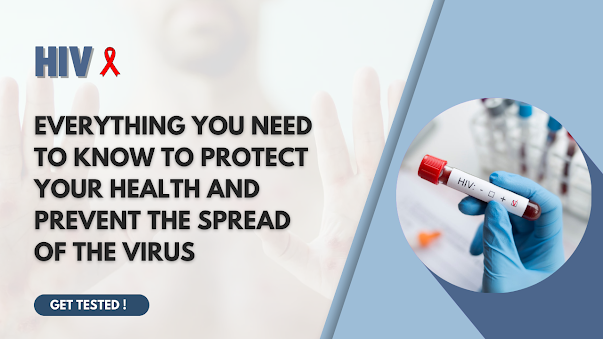HIV Testing: Everything You Need to Know to Protect Your Health and Prevent the Spread of the Virus
Human Immunodeficiency Virus (HIV) is a serious health condition that can lead to Acquired Immunodeficiency Syndrome (AIDS). It is transmitted through the exchange of certain bodily fluids, such as blood, semen, vaginal fluids, and breast milk. There is no cure for HIV, but with proper treatment, people living with the virus can lead long, healthy lives. HIV testing is an important tool for identifying and preventing the spread of the virus. In this blog, we will explore everything you need to know about HIV testing, including the types of tests available, when to get tested, and how to interpret your results.
Types of HIV Tests
There are several types of HIV tests available, including:
Antibody Tests: This is the most common type of HIV test, which looks for antibodies that your immune system produces in response to HIV. These tests can detect HIV infection within 2-8 weeks after exposure.
Antigen Tests: These tests detect the presence of HIV antigens, which are proteins on the surface of the virus. Antigen tests can detect HIV infection within 2-4 weeks after exposure.
Combination Tests: These tests look for both antibodies and antigens, providing the most accurate results. Combination tests can detect HIV infection within 2-6 weeks after exposure.
Nucleic Acid Tests: These tests look for the genetic material (RNA) of the virus. Nucleic acid tests are the most sensitive and can detect HIV infection within 7-14 days after exposure.
When to Get Tested
The Centers for Disease Control and Prevention (CDC) recommends that everyone between the ages of 13 and 64 get tested for HIV at least once as part of their routine healthcare. Additionally, people who engage in behaviors that increase their risk of HIV, such as having unprotected sex or sharing needles, should get tested more frequently.
How to Interpret Your Results
HIV test results can be either positive or negative. A positive test result means that you have HIV. A negative test result means that you do not have HIV, but it is important to note that a negative result does not mean you are immune to the virus.
If you receive a positive HIV test result, it is important to seek medical care right away. Early treatment can help slow the progression of the virus and prevent the development of AIDS.
If you receive a negative HIV test result, it is still important to take steps to protect yourself from the virus, such as using condoms during sex and not sharing needles.
Where to Get Tested
HIV testing is available at many healthcare facilities, including hospitals, clinics, and community health centers. Some pharmacies also offer HIV testing. Additionally, there are several at-home HIV testing kits available for purchase online or at drugstores.
Final Thoughts
HIV testing is an important part of protecting your health and preventing the spread of the virus. By getting tested regularly and taking steps to protect yourself and others, you can help stop the spread of HIV and ensure a healthy future.




Comments
Post a Comment